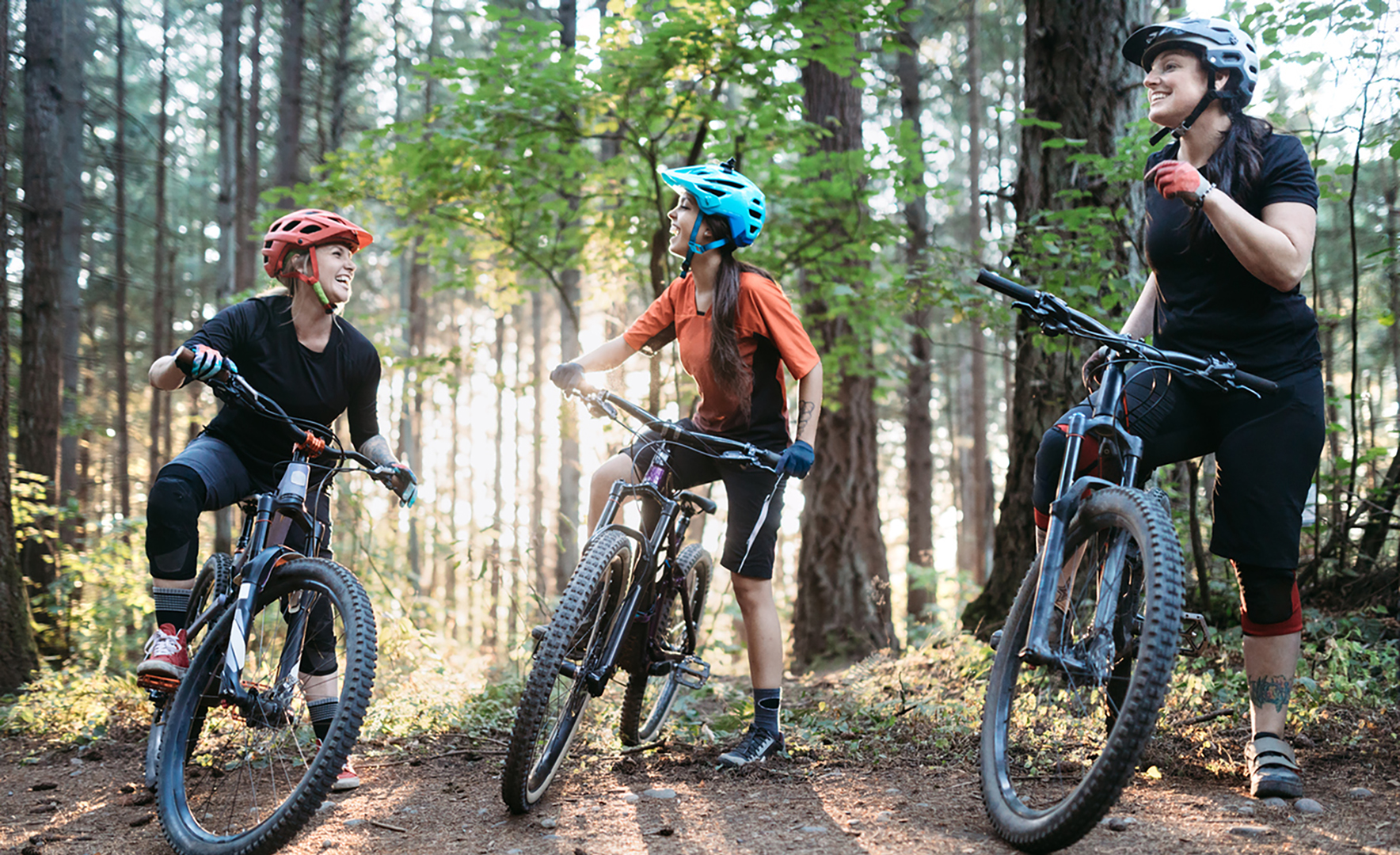Anyone who has ever tried mountain biking knows that every ride – even (especially) cold, mucky ones – comes with a great big grin.
But could riding a bike in forests and country paths actually combat depression and mental illness? A six-week pilot in Scotland, where mountain biking was used as part of a therapeutic recovery programme for people experiencing mental ill health, suggests yes.
A partnership between Developing Mountain Biking in Scotland (DMBinS), Scottish Borders Health and Social Care Partnership, Edinburgh Napier University and mental health support unit Gala Resource Centre, the project saw 10 participants embarking on weekly two-hour rides at Glentress mountain bike trails near Peebles, with cycling and health professionals on hand. “We wanted to understand if mountain biking aided people’s recovery from a period of mental ill-health,” explains DMBinS project manager Graeme McLean.
Staff reported an exceptional response from everyone taking part.
The premise was to use a non-clinical environment to promote self-management skills to improve both physical and mental health. Chief officer for the programme, Robert McCulloch-Graham, says: “Staff reported an exceptional response from everyone taking part. They were able to observe genuine progress being made in terms of personal resilience, self-efficacy, social skills and confidence.”
Results are now being evaluated by Napier University sports psychologist Tony Westbury, who is studying the impact from the participants’ perspective and collecting learning from the occupational therapists involved regarding how it could be developed, improved and escalated.
Within the cycling community the positive boost that being on a bike gives to your head, heart and soul is widely recognised; for any cyclist the fun factor, confidence and happiness that a bike ride brings is a no-brainer. And last August the largest study of its kind, analysing the exercise and mental health data of 1,237,194 adults over three years, backed this up.










